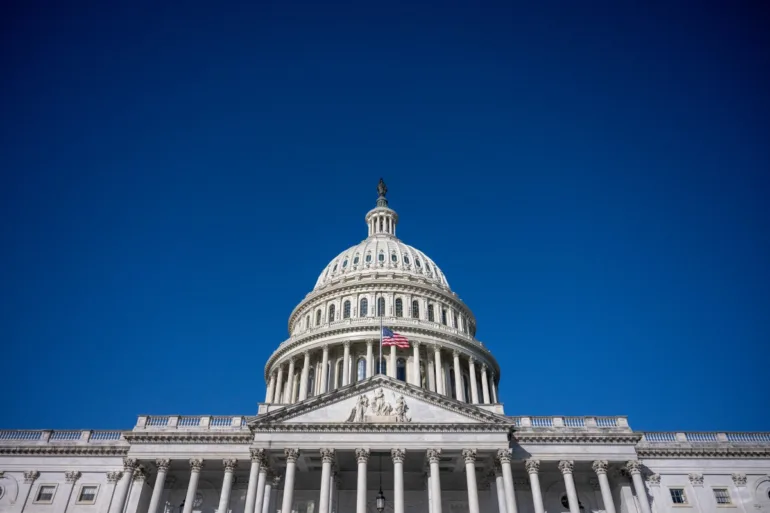In the early hours of Thursday, the US Senate approved a controversial package of spending cuts championed by former President Donald Trump, which would eliminate more than $9 billion in funding for foreign aid programs and public broadcasting.
The Republican-led upper chamber passed the measure with a narrow 51-48 vote, extending the session more than two hours past midnight. The vote is seen as the first significant test of how readily Congress will adopt savings proposed by Elon Musk’s Department of Government Efficiency (DOGE) — created after the tech billionaire’s turbulent departure from the administration.
Despite opposition within both parties, the bill advanced amid growing debate over the impact of deep cuts to key programs. An earlier House version sought to strip $400 million from health programs, including the PEPFAR global AIDS relief fund — established under President George W. Bush and credited with saving an estimated 26 million lives. However, pressure from moderate Republicans led to the removal of PEPFAR defunding from the final package.
Senator Lindsey Graham (R-South Carolina), a vocal supporter of Trump’s spending reduction efforts, defended the bill while acknowledging the importance of foreign aid.
“I’ve been a big fan of foreign aid… I’m a hawk, but you need foreign aid. You need soft power,” Graham said. “But when money goes to junk programs disconnected from the aid’s purpose, it makes it difficult on someone like me.”
The bill now returns to the House for final approval, with lawmakers facing a Friday deadline to approve the cuts. Without timely congressional approval, the White House would be compelled to spend the funds as originally allocated.
Passing a rescissions package — legislation that retracts previously approved spending — is exceedingly rare, with no such bill passing Congress in decades.
Internal GOP divisions and Musk’s role
About a dozen Republicans expressed unease over granting the White House authority to dictate spending cuts, drawing rebukes from Trump, who last week threatened to withhold endorsements from dissenting members.
The vote marks the first in a series of proposed measures aimed at codifying spending cuts initiated by DOGE. Elon Musk was appointed by Trump to lead the task force after spending $290 million supporting his 2020 campaign. Musk had pledged to save $2 trillion in federal spending but left the White House amid disagreements over deficits and budget priorities.
DOGE claims it has saved taxpayers $190 billion so far, though fact-checkers question the accuracy of this figure given past inconsistencies.
The rescissions package targets roughly $8 billion in foreign aid, much of which was earmarked for USAID — one of DOGE’s earliest targets. It also seeks to claw back about $1 billion from the Corporation for Public Broadcasting, which funds NPR, PBS, and over 1,500 local stations.
Conservatives frequently criticize NPR and PBS for perceived liberal bias, and Trump signed an executive order in May to end federal funding for these outlets.
Democrats argue the cuts will do little to reduce the deficit but will dismantle trusted sources of public information.
“This is yet another example of the spirit and ideals of our Constitution being undermined,” said Senator Cory Booker (D-New Jersey).
“We are a nation that believes Congress has a real role, but too many of my colleagues are surrendering that power to the president instead of working together in a bipartisan way to improve budgets.”
AFP


